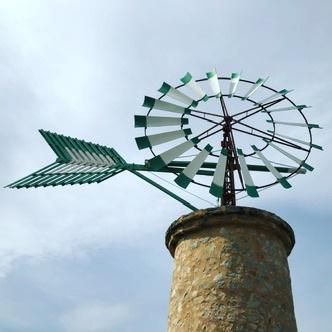What should travelers know about the historical context that shaped Maria del Mar Bonet’s musical career?
Similar Topics
maria del mar
franco dictatorship
catalan language
balearic islands music
nova cançó movement
mediterranean folk
catalan cultural revival
spanish transition democracy
Maria del Mar Bonet’s musical career is deeply rooted in the complex historical and cultural landscape of Spain in the latter half of the 20th century. Born in Mallorca in 1947, she emerged as a significant figure during a period marked by the Franco dictatorship, which lasted until the mid-1970s. The regime was known for its repression of regional identities, particularly the suppression of Catalan language and culture. Bonet’s early work, therefore, was not only artistic but also political, as she chose to sing in Catalan, the language of her native Balearic Islands. By doing so, she became part of the broader cultural resistance that sought to preserve and revitalize Catalan heritage during a time when it was discouraged by the state.
Her music was influenced by traditional Mallorcan and Catalan folk songs, which she blended with contemporary folk and Mediterranean sounds, creating a unique style that resonated with those who longed for cultural expression after years of repression. After the death of Franco in 1975, Spain underwent a transition to democracy, which opened up new opportunities for regional languages and cultural expressions to flourish. Bonet’s career expanded during this period as she could freely express her cultural identity and reach audiences interested in the revival of regional traditions. This historical context explains how her music became a symbol of cultural pride and resilience.
Moreover, Bonet also played a role in the broader movement of "Nova Cançó," a Catalan cultural and musical renaissance that involved several artists committed to promoting Catalan language and identity through song. This movement was significant in shaping the cultural landscape of Spain’s diverse regions, and Bonet’s contributions helped ensure that the music of Mallorca and the Balearic Islands would be recognized on a national and international level. As a traveler interested in her music, understanding these historical dynamics gives deeper insight into how her work reflects not just artistic inspiration, but also a powerful narrative of cultural survival and affirmation.
In sum, Maria del Mar Bonet’s career cannot be fully appreciated without recognizing the impact of Francoist Spain’s censorship and the subsequent cultural revival that followed. Her dedication to performing in Catalan and preserving Mediterranean folk traditions is intertwined with Spain's political and cultural history. For travelers exploring the musical heritage of the Balearic Islands or Catalonia, Bonet’s work offers a vivid example of how music can serve both as artistic expression and as a vessel for cultural identity shaped by historical struggle and renewal.
Her music was influenced by traditional Mallorcan and Catalan folk songs, which she blended with contemporary folk and Mediterranean sounds, creating a unique style that resonated with those who longed for cultural expression after years of repression. After the death of Franco in 1975, Spain underwent a transition to democracy, which opened up new opportunities for regional languages and cultural expressions to flourish. Bonet’s career expanded during this period as she could freely express her cultural identity and reach audiences interested in the revival of regional traditions. This historical context explains how her music became a symbol of cultural pride and resilience.
Moreover, Bonet also played a role in the broader movement of "Nova Cançó," a Catalan cultural and musical renaissance that involved several artists committed to promoting Catalan language and identity through song. This movement was significant in shaping the cultural landscape of Spain’s diverse regions, and Bonet’s contributions helped ensure that the music of Mallorca and the Balearic Islands would be recognized on a national and international level. As a traveler interested in her music, understanding these historical dynamics gives deeper insight into how her work reflects not just artistic inspiration, but also a powerful narrative of cultural survival and affirmation.
In sum, Maria del Mar Bonet’s career cannot be fully appreciated without recognizing the impact of Francoist Spain’s censorship and the subsequent cultural revival that followed. Her dedication to performing in Catalan and preserving Mediterranean folk traditions is intertwined with Spain's political and cultural history. For travelers exploring the musical heritage of the Balearic Islands or Catalonia, Bonet’s work offers a vivid example of how music can serve both as artistic expression and as a vessel for cultural identity shaped by historical struggle and renewal.
🧩 Related Questions
Related Question
What are some of the key architectural features that make the Sanctuary of Lluc unique to Mallorca?
Related Question
What role do Glosadors play in Mallorcan culture and community events?
Related Question
In what ways do Mallorca’s culinary traditions differ from those of Galicia and the Basque Country?
